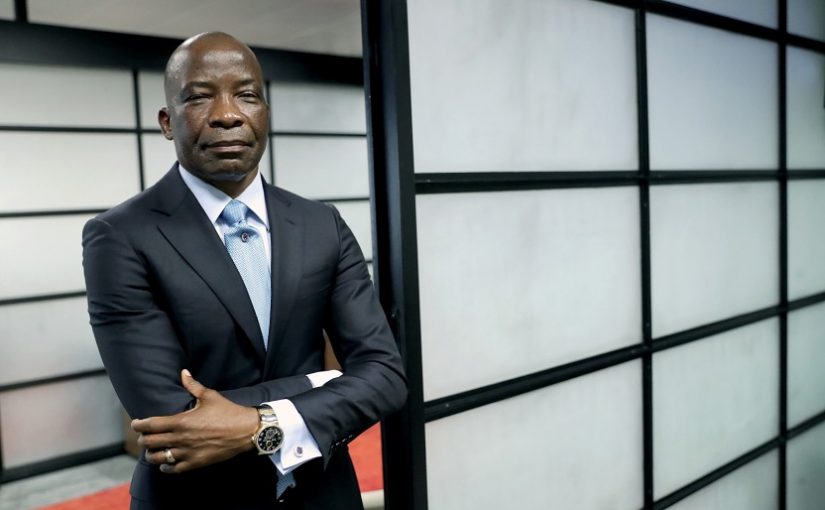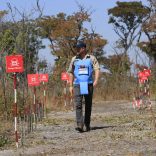Former President Bolsonaro ordered to pay damages for racist comments
Angola: Chinese investment more than doubles since 2020 – Trade chamber

File photo: Lusa
Chinese investment in Angola has more than doubled since 2020, with an improvement also in trade, reflecting a “consistent” relationship that will be revitalised by the visit of China’s foreign minister to the country.
In an interview with Lusa, on the day Angola and China celebrate 40 years of diplomatic relations, the president of the Angola-China Chamber of Commerce (CAC), Luís Cupenala, said that relations between the two countries were established for mutual benefit and have been consistent.
The event coincides with the arrival of China’s foreign minister, Qin Gang, in Angola, which is part of his programme of visits to Africa.
Cupenala described 2022 as a “good year” in terms of trade partnerships, with trade between the two countries reaching around US$23 billion (around €21.3 billion) by October, while the flow of Chinese private investment more than doubled between 2020 and 2022, rising from US$125 million (€115 million) in 2020 to US$295 million (€273 million) last year.
The investment stock stood at $24 billion (€22.2 billion), including the oil sector.
“Improvement is constant, despite the difficulties the world is experiencing,” the businessman noted, highlighting the dynamics of the private sector, with Chinese companies in key sectors of the Angolan economy, which is not expected to undergo significant changes, despite the international situation and uncertainties about Covid-19.
“In 2020, we did not know about [the disease], the responses that were found to deal with the matter were very complex,” he acknowledged, adding that there was now more “maturity” about the pandemic, adopting “palliative measures to mitigate the risk.
He said that Qin Gang’s visit to Luanda expressed China’s position in the world, in Africa and in Angola, “a strategic partner of China,” and was “a way of revitalising the relations that China wants to build with Africa,” and, in Angola’s case, a milestone in the 40th anniversary of relations between the two countries that require “permanent dialogue.
“I think this visit will make it possible to revisit the cooperation agenda, the improvement of points of view and changing the framework of cooperation on some points,” helping to reflect on the benefits of a relationship over four decades and adding value to Angola’s diversification and industrialisation processes, he said.
All of this needs a concerted agenda, he noted, adding that the Chinese experience should be used to transform Angola “into a prosperous country where each citizen, according to their potential, can make their achievements.
The businessman stressed that Angola needs “healthy cooperation” with countries that bring financial resources and human capital, ‘know-how’ and technology to transform their resources into goods and services and rejected imbalances in China’s relationship with African countries.
“Each country has its own vision”, and African countries are “sovereign and choose the relationships that most benefit their countries,” the CAC leader said, adding that in a world of “a lot of competition,” messages are used to create “a psychological state” unfavourable or favourable to certain countries.
“They are jealous. The world has many players, and Africa is a continent with many riches,” he commented.
“I don’t think independent countries, with sovereignty, with very well structured visions, feel colonised by other countries. Contracts are defined and negotiated in proportion to the common benefits,” he said.
Moreover, the lack of transparency in the content of contracts is not a problem for the Chinese but for African leaders, “who need to be very patriotic and love their countries”.
“The problem is not China’s, or Europe’s, or America’s, the problem is the way relations should be structured. We cannot blame other people for the mismanagement of my home, we must organise ourselves so that those who come respect what we have as an identity in our own home. If we don’t have this, relationships can be problematic”, he commented.
He also downplayed the high weight of Angola’s debt to China, recalling the financial support that China gave at the end of the war for national reconstruction.
“It is a debt that exists, and those who owe must pay. Angola is servicing the debt, we do not see what problem it can bring to Angola unless there is a default,” he said.
In relation to legal cases linked to Chinese companies that allegedly involved embezzlement, such as those involving former vice-president Manuel Vicente and Chinese company CIF, he noted that corruption problems were in the hands of the courts and did not affect relations between the two countries.
Hundreds of Chinese companies currently operate in Angola, many of which are grouped into the seven existing business associations linked to their provinces of origin.
According to the association’s leader, some of the problems associated with Chinese companies in Angola, for which the CAC has made a diagnosis and is providing legal and financial assistance, are related to ignorance of the law, while labour conflicts are essentially the result of “cultural issues.
However, there is a commitment to improving working conditions, and salaries and Chinese business leaders are “very flexible to cooperate,” as they have a long-term interest in Angola.
The CAC is also collecting data about the number of workers employed by these companies, but Cupenala said that, in general, they employ few Chinese labourers because they understand that “it is necessary to transfer knowledge, technology and know-how to Angolans”.
Construction, real estate, agriculture and agro-industry, the extractive industry, electrical equipment manufacturing, telecommunications and health are some of the dominant areas of Chinese investment in Angola.













Leave a Reply
Be the First to Comment!
You must be logged in to post a comment.
You must be logged in to post a comment.